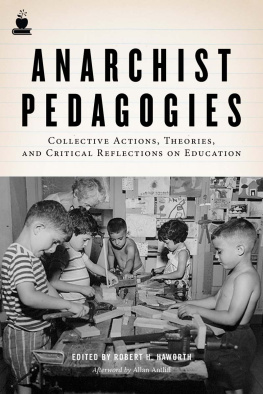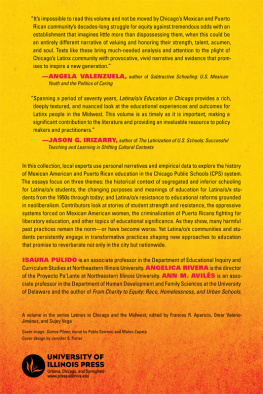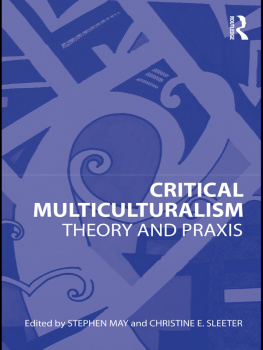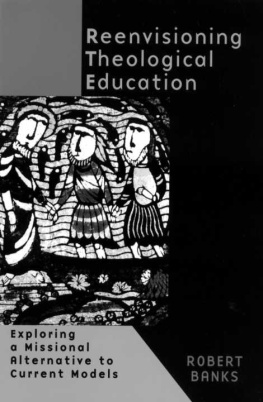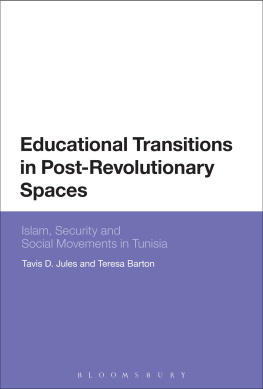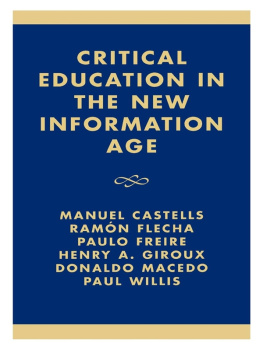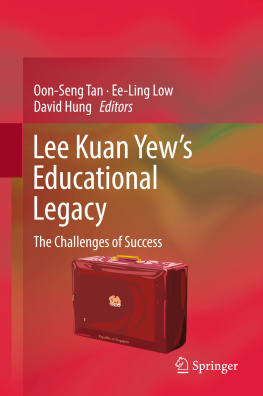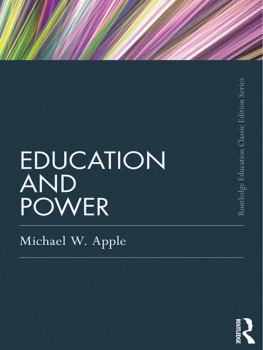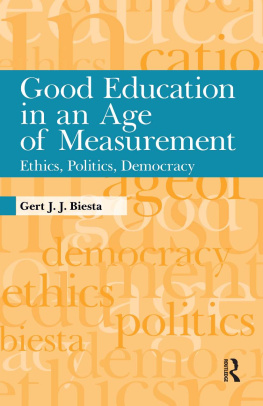
Anarchist Pedagogies: Collective Actions, Theories, and Critical Reflections on Education
Edited by Robert H. Haworth
2012 PM Press
All rights reserved.
ISBN: 978-1-60486-484-7
Library of Congress Control Number: 2011927981
Cover: John Yates / www.stealworks.com
Interior design by briandesign
10 9 8 7 6 5 4 3 2 1
PM Press
PO Box 23912
Oakland, CA 94623
www.pmpress.org
Printed in the USA on recycled paper, by the Employee Owners of Thomson-Shore in Dexter, Michigan.
www.thomsonshore.com
CONTENTS
Robert H. Haworth
Section I Anarchism & Education:
Learning from Historical Experimentations
Alejandro de Acosta
Justin Mueller
David Gabbard
Saku Pinta
Joseph Todd
Alejandro de Acosta
Matthew Weinstein
Isabelle Fremeaux and John Jordan
Jeffery Shantz
Sara C. Motta
Jeffery Shantz
Elsa Noterman and Andre Pusey
Caroline K. Kaltefleiter and Anthony J. Nocella II
Alejandro de Acosta
Alex Khasnabish
Lucy Nicholas
Curry Stephenson Malott
Nathan Jun
Alejandro de Acosta
Abraham P. DeLeon
Allan Antliff
Introduction
Robert H. Haworth
A s I sit to write this introduction I am reminded of a particular teaching experience I had almost a decade ago. During class, I was passing out the dreaded federal standardized test when one of my students who considered himself an anarcho-punk yelled out, Hey Mr. Haworth, you are a fucking sell-out! I couldnt help but think about the two decades I had been involved in punk and hardcore, as well as the intense collective work many (including myself) had participated in throughout those years. How could I be a sell-out? I stopped everything and asked him what it meant to be a punk, and how he identified and acted as an anarchist within the overwhelming functions of the state and capitalism? I went on to ask the rest of the class specifically, If I dont have a certain punk aesthetic and work as a teacher in the public schools, is that considered selling out?
After that experience, I went home frustrated. As a student, I didnt like high school or the ridiculous standardized tests either, but I asked myself an important question: Was I doing something different in my classroom or just reinforcing and reproducing state and corporate interests? As an educator, I worked diligently to teach through a more creative, dialogical, and critical framework. I worked as a social studies teacher because I felt it was a space where I could engage students in important discussions surrounding the problems of capitalism and the injustices in the world. I believed public schools were potential spaces to experiment in different pedagogical practices and at the same time cultivate dissent against a system that has been so oppressive to young people and anyone living outside of dominant cultural practices.
I have to be honest that I dont agree with my students judgment that I am a sell-out, although there are times I feel differently. Throughout my transition into academia, I have realized how much those comments and that conversation with the class had an impact on my thinking. Experiences such as these have led me to think more critically about the complex relationship anarchism has with education. In fact, the more we engage in conversations about these intricate relationships the more we see that they are filled with tensions and ambiguity. Should we place our bets on a state-run educational system that anarchists have always been skeptical of (including my student)one that is hierarchical and extremely authoritative? For me, and probably my old student, the answer is no, but I dont make that decision lightly or without bringing up more inquiries.
For example, scholars within critical pedagogy (see Paulo Freire) have not only written extensively on pedagogical processes that question and resist authoritative structures, but they have also taken into consideration the transformative possibilities and spaces of resistance that teachers form within different public school settings. Tensions definitely emerge with the deskilling of teachers (Giroux, 1988) as our schools are inundated with prescribed curriculum and there is very little room to discuss ideas and critical perspectives outside of the scripted materials. On the other hand, anarchists have taken a different direction. Historically, anarchists have steadily criticized the state and public schools and have considered them mundane institutions that uniformly reinforce capitalism and hierarchical models of control. However, over the last century, anarchists have made numerous attempts to create educational processes that transgress authoritative factory models and deterministic curriculum of the state and corporate entities (see Paul Avrich).
The early twentieth century was full of criticisms and philosophical discussions surrounding education. John Dewey and others brought into question the very nature of schooling and what it means to be an educated person (see My Pedagogic Creed). Unfortunately, many progressive criticisms and pedagogical practices had limitations. Their notions of education were more in line and embedded in school reform under the state and limited to what can be imagined and created within a managed or representative democratic society. One of the many significant anarchist voices that challenged state-run schools and their oppressive pedagogical practices was that of Emma Goldman. Inspired by Francisco Ferrers (1913) work in Spain, Goldman wrote scathing critiques of classroom teachers, specifically their troublesome teaching practices under capitalism and the suffocating implications they had on the larger society: The ideal of the average pedagogist is not a complete, well-rounded, original being; rather does he seek that the result of his art of pedagogy shall be automatons of flesh and blood, to best fit into the treadmill of society and the emptiness and dullness of our lives (p. 8).
Clearly Goldmans statement is not limited to that particular time period. Her foretelling words resonate deeply into schools in the twenty-first century. In many cases, schools are still dull and lack inspiration, creativity, and spontaneity. From an anarchist perspective, public schools are connected to and guided by the state, whereby they are infused with authoritarian relationships between the student and teacher, they uphold corporate structures and are inundated with standardized curriculum. Under these particular state structures, teachers work lacks autonomy and many (particularly failing schools under federal mandates) are forced to conform to curriculum standards, meritocracy, and quantitative outcomes.
Therefore, important questions need to be addressed. For example, Are there spaces where discussions surrounding education and connections to anarchism are occurring? and Are there movements to create alternatives to schooling under capitalism and state structures? It is quite evident that the body of writings by Goldman and others who challenged the dominant practices of state-run education are considered less frequently within academic settings and in the larger public school discourse. However, there are locations where alternative learning spaces are being created and where discussions are happening surrounding anarchist pedagogies. This is particularily evident in the struggles against neoliberalism and in the current Occupy movements. Yet it is still not seen as a relevant philosophy or theoretical framework. This should probably not be a surprise to anyone. For over a century, anarchism has been predominantly misunderstood and definitely misrepresented in political, economic, social, and cultural spaces. Graeber (2004) points out that most academics seem to have only the vaguest idea what anarchism is even about; or dismiss it with the crudest stereotypes (p. 2). Unfortunately, the dismissal of anarchist thought tends to move even further away when discussing philosophical and theoretical frameworks in education. Although there are many educational researchers who frame their work within critical perspectives (Marxism, neo-Marxism, Autonomist Marxism, and Marxist Humanism), the majority of research and teaching practices are confined to liberal and conservative ideological debates.
Next page
